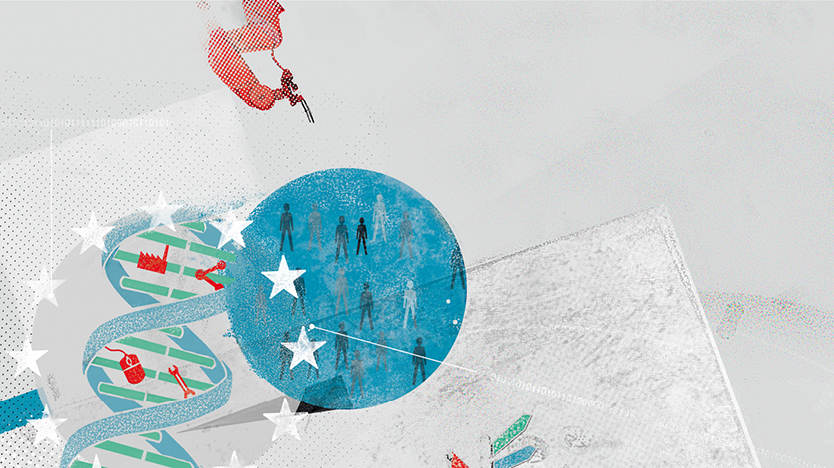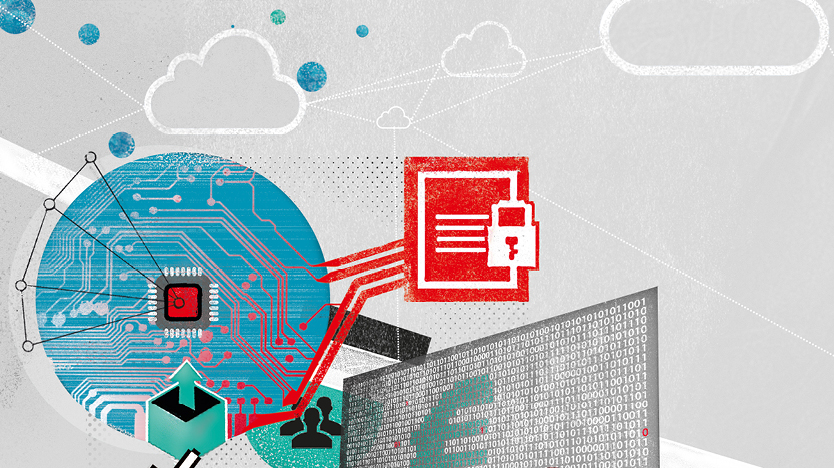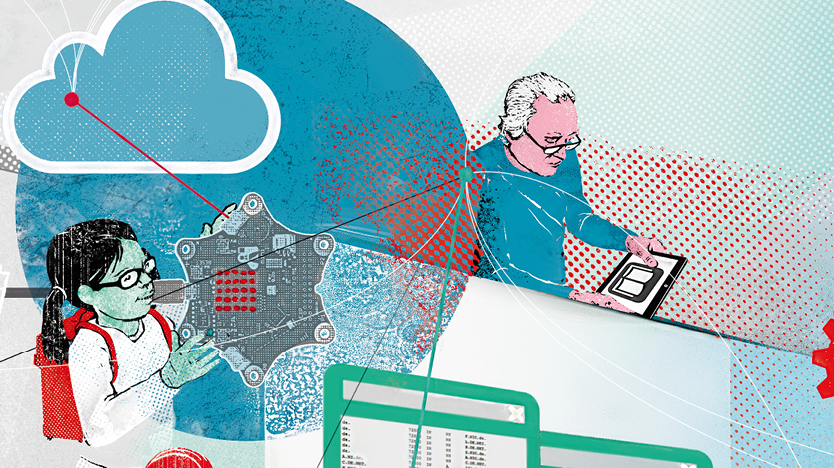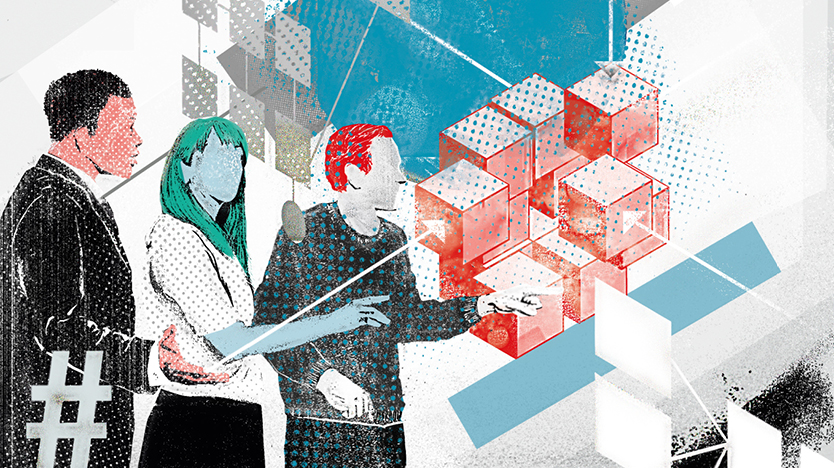
© BMWK / Herr Müller
Streaming videos, doing banking transactions online, shopping on the web – this has become very commonplace for many people, especially urban residents. However, streaming a television show or making a bank transfer online in rural areas can be a frustrating experience: instead of a favorite series, news program or account update, often the only thing visible on the screen is the loading icon.
Digital rutty roads in the country, Motorways in the city
A nuisance at home, such inconveniences can become a very real business disadvantage. Small and medium-sized businesses in rural areas are cut off from progress if they do not have access to fast Internet. For example, they cannot conduct video conferences with business partners or access data in the Cloud. What’s more, downloading large volumes of data takes hours instead of a few seconds.
The situation in the cities is much better. Speeds of at least 50MBit/s have become standard. Urban data highways and rural digital ruts together achieve an average data rate of only 13.7MBit/s – putting Germany in 26th place internationally.
Obviously, there is much room for improvement, and the Federal Government has created a package to fill this gap: it has provided 4 billion euro for broadband expansion since the end of 2015. The goal is to enable all of Germany to surf the Internet at speeds of at least 50MBit/s by 2018. This could succeed: more than 70 % of all households already have access to a fast broadband connection, and supplying the remaining 30 % is a high-priority project.

© BMWK
Broadband networks today, gigabit networks tomorrow
Broadband connections can only be an interim step. Even today it is obvious that we will need much higher speeds in the future in order to take advantage all of the new digital services being offered. In particular, the Internet of Things relies on fast and absolutely reliable networks – both on the ground and mobile.
For example, autonomous driving: even the best sensors and cameras on the vehicles cannot predict an accident beyond the next curve in the highway. However, if all vehicles were connected to strong mobile networks, they could inform each other in fractions of a second about the accident and brake in time. Or, to provide an example from e-health: in the future, patients will be able to consult with their doctor by video for follow-up care or monitoring. This saves travel time and unnecessary waiting in doctors’ offices. Stroke patients in rural areas can also profit from specialist doctors who join the team in the emergency room of a hospital by videoconference to assist the on-site doctor. Within minutes the best possible treatment can begin – provided there are powerful networks that assure disruption-free communication.
This and many other applications are made possible by gigabit networks with speeds of over 1,000MBit/s – using fiberglass cables underground, and mobile networks equipped with the future standard 5G. The Federal Ministry for Economic Affairs and Climate Action (BMWK) actively supports measures to create such gigabit networks nationwide in Germany by 2025. It is not enough to have good networks in Germany – they must be topnotch. This is the only way for our economy to remain competitive. And it also provides people the opportunity to benefit from digitalisation.
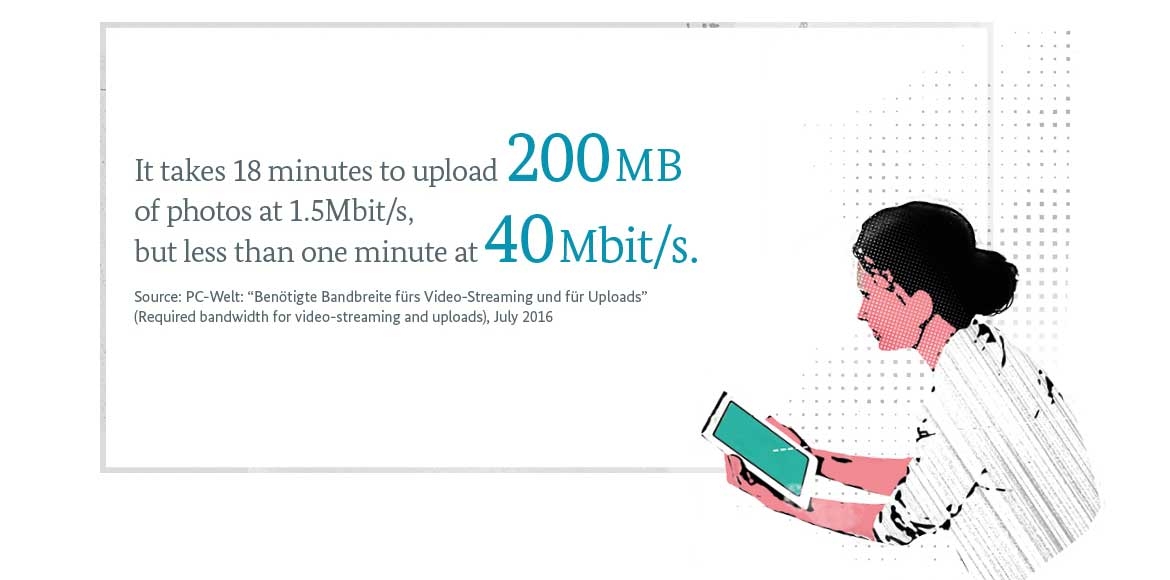
© BMWK
Once around the entire globe
A national approach is much too limited. Not only are private persons often in contact with friends around the world, but also companies, who increasingly collaborate on an international level. To make the digitalisation of the economy and society a global success, the German G20 presidency has set a clear goal: all G20 countries should agree to connect all of their households and companies to fast Internet by 2025. This will require additional public and private investment.
Together with the other G20 countries, we must therefore ensure that global economic growth and social participation are not hindered by a lack of fast networks or access to the Internet.
In addition to fast networks, the new Internet protocol IPv6 must be introduced globally to create a powerful digital infrastructure. We want to make IPv6 a priority in the G20 digitalisation process.
| What actually is IPv6? |
|---|
| In order for billions of devices – from refrigerators to cars to 3D printers – to communicate with each other in the Internet of Things in the near future, new Internet protocols are necessary: so-called IPv6 protocols. To put it simply, these are addresses used for sending “digital mail” to any user and any object in the Internet. IPv6 makes 600 quadrillion IP addresses accessible to every square millimeter of the earth. |
![To homepage Logo [EN]de.digital](https://www.de.digital/SiteGlobals/DIGITAL/StyleBundles/Bilder/sublogo_en.png?__blob=normal&v=1)


